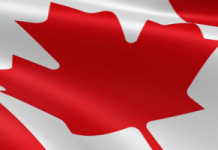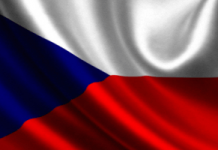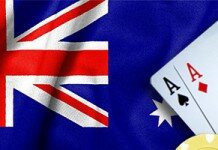
Prior to 2012, Denmark has had a longstanding government monopoly on gambling, which applied to land-based as well as virtual casinos. The liberalization of the online gambling market in the country in that year, and along with it, new legislation, was therefore a welcome development for many.
With the liberalization of the online gambling industry, the market was opened up to several new international gaming firms. Based on the satisfactory performance of iGaming, a regulated local gambling company, many are now considering the benefits that can be gained by way of effective regulation of the market.
The new laws were instituted with the following goals in mind:
– The restriction of gaming activities to a specific level.
– The establishment of fair and responsible gaming practices.
– The prevention of the harmful effects of gambling, particularly among the youth.
– The prevention of the use of gambling revenues to fund criminal activities.
With these goals, the focus seems to be on drawing on the benefits that a properly-regulated gambling industry can provide, while avoiding the negative effects associated with gambling.
The growth of the gambling industry in Denmark (2025-2025)
Perhaps as a direct result of the liberalization of the local gambling industry in Denmark, the market in general has experienced considerable growth. In the first quarter of 2025, as much as 30% in year-on-year growth was registered in the sports betting and online casino market. Gross Gaming Revenues (GGR) also reached DKK975 million, which is significantly higher than the DKK750 million generated in the same period the year before.
Among the factors attributed to this growth is the increase in revenues generated by the online sports betting and casino industries, which, according to local gaming regulator Spillemyndigheden, made up 78% of the total GGR. Sports betting revenues increased by as much as 33% in Q1 in 2025 as compared to the same period during the previous year, with online bets comprising 64% of the growth. Revenues generated by online casinos also increased by 25% compared to Q1 in 2015.
The second quarter of 2025 was equally promising. In the three months ending in June, the revenues generated by the betting and online casino industries were reported at DKK935 million. The revenues during the same period of the previous year was DKK805 million.
The biggest earners for the period were gaming machines, particularly the online slots. This segment of the industry accounted for 68% of the DKK935 million generated. Poker, for its part, made up 10% of the gross revenue. Roulette earned 6%, while blackjack made up 5% of the total earnings.
New players enter Danish market
Among the companies that have found a favorable market in the wake of Denmark’s liberalization of the gambling industry are LeoVegas and Mr Green. In October 2025, LeoVegas was granted a license to operate in Denmark, with its brand launched locally in autumn of the same year.
LeoVegas’ inroads into the Danish gaming market are in line with the company’s expansion plans, which involve introducing its brand via local outlets, and the expansion of its own team. Already one of the most recognizable brands in the global market, LeoVegas has put together a team of digital marketing specialists, each member of which is thoroughly familiar with the Danish gaming industry. With the goal of providing a totally satisfactory experience to the local gaming public, the company has its sights set on long-term growth in the country.
Mr Green adopted a different approach to entering the Danish market. In February 2025, the company announced its acquisition of all the shares of local online gambling operator Dansk Underholdning to the tune of €9 million. Mr Green may also pay an additional 650,000 to Dansk depending on the latter’s performance.
The negotiations were part of Mr. Green’s plans to launch its brand locally in late 2025, pending regulatory approval. According to Mr Green CEO Per Norman, the company has had its sights on Dansk for months, considering the Danish firm an essential component to Mr Green’s expansion plans.
At the moment, according to bedsteonlinecasinoer.dk, there are more than 35 licensed online casino operators serving the Danish market.
Liberalization boosts earning potential
The Danish government’s acceptance of foreign gambling interests did not occur overnight, although many would say that it was a long time coming. There were a number of indicators that pointed to a less than optimal scenario prior to the liberalization of the local gambling market, which placed the government at a strict disadvantage. One of these was the growth of the unauthorized bingo market to twice the size of the licensed market operated by Danske Spil. The chance to earn back lost potential income was therefore one of the key factors that brought about the shift to the liberalization of the local gambling market.
Denmark: Model for the rest of the EU?
From a country that had a restrictive monopoly on the gambling trade, Denmark has now become a model of sorts for how other countries in Europe will be dealing with its own legislation issues. It remains to be seen as to whether or not the rest of the EU will vote in favor of following in Denmark’s footsteps. After all, many of these countries remain reluctant to dismantle their own gambling monopolies, just as Denmark was pre-liberalization. If Denmark’s landmark decision turns out to have positive effects however, some of these countries may just follow suit.








